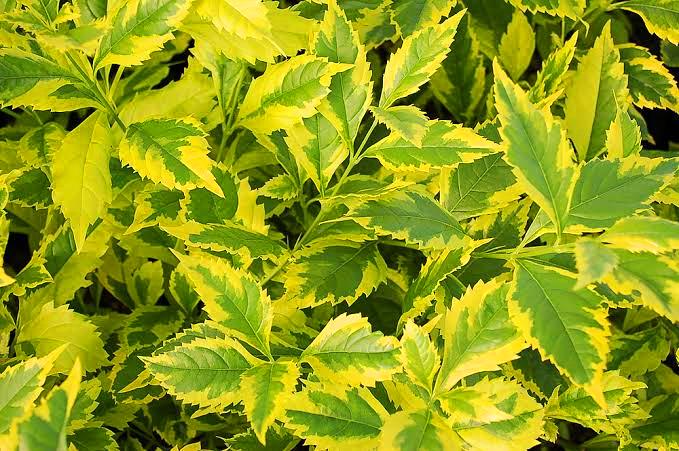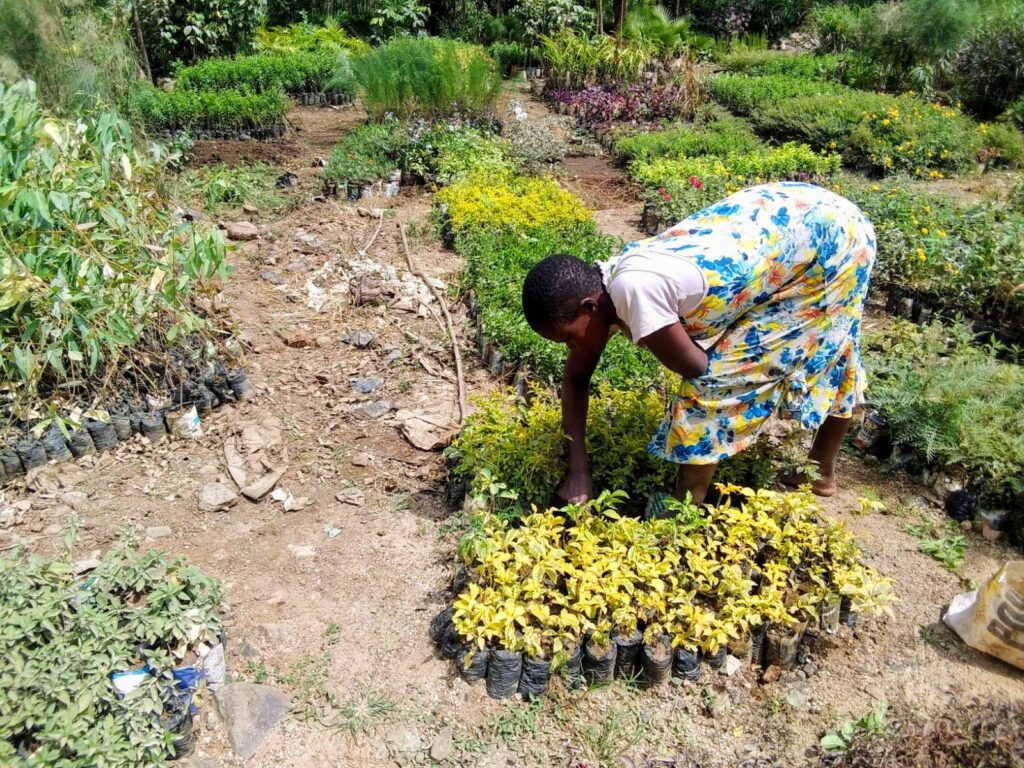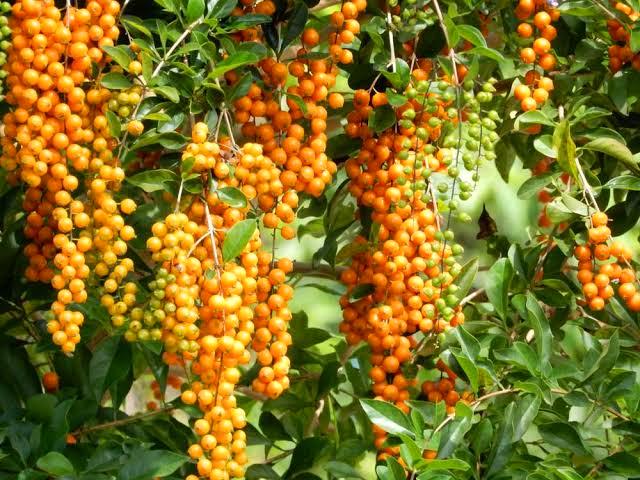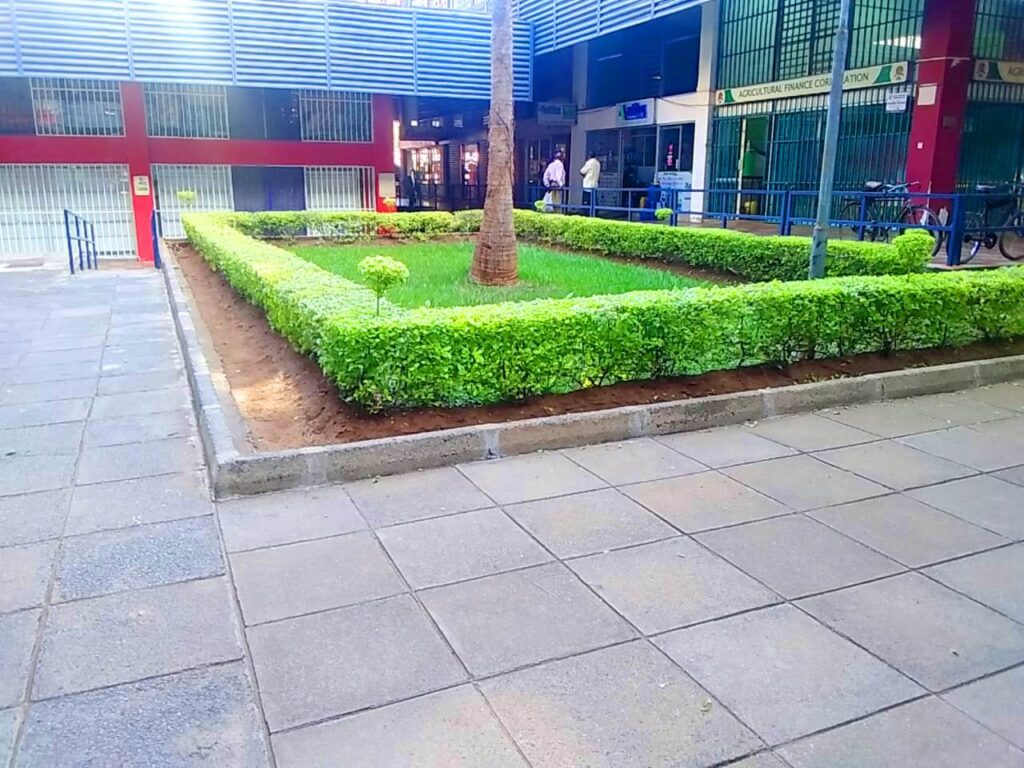Known for its undeniably beautiful and attractive foliage, ‘Sheenas Gold’ botanically known as duranta erecta, is the darling plant in Kenyan landscapes.
However, its potentially dark side has remained unknown to majority of its admirers world over.
Native to the Americas, the duranta erecta exist in up to 17 documented species and presently spreads across many countries including Asia, Australia and Africa.
The plant goes by many other names including golden dewdrop, golden duranta, pigeon berry, geisha girl among others which have been coined over time given its vast spread through different countries and cultures.
‘Sheenas gold’ is the most common species due to its golden foliage. Some varieties posse variegated leaves while others have dark green leaves.

The environmental beauty
It is a largely drought tolerant evergreen plant that is known to survive all weather seasons including dry and humid conditions of beach climate.
It is widely cultivated for its ornamental appearance which makes it useful in creating color contrast in multi-hedge landscape garden designs, a feature that has made it the number one plant of choice for landscapers in Kenya.
Celine Achieng who has worked as a tree seedling seller in Migosi area of Kisumu County for a couple of years says most people buy it for ornamental purposes.
“People just love this plant’s appearance,” she says, adding that it is one of the frequently sought after plant in her line of work.
Though useful in decorating external spaces due to its affinity for sunlight, the Duranta can also thrive in an indoor environment as a potted plant when placed near a clear glass window or by occasional ferrying to the outside during day light.
A step into majority of Kenyan homes, resorts and institutions among other places with wide exteriors and landscapes usually reveal the dominance of this plant above other species.
54 year old Consolata Owitti, a resident of Kisumu County is one of the countless lovers of this plant and has adorned a good portion of her one acre home with it.
When Lake Region Bulletin paid her a visit, she was busy pruning and trimming them.
It was in every way a magnificent scenery to behold, nature usually is.
“I love this plant because it forms beautiful hedges and is very easy to trim to desired shapes,” Owitti said.
So blinded by the beauty of this plant have people become that no one has ever bothered to inquire on its additional properties beyond its obvious beauty.
For instance, are its mouth watering berries edible by humans or can its evergreen leaves be consumed by herbivores?
Growth and care
The duranta can be grown using seeds from its berries and this usually takes 30 to 60 days under a temperature of 70 degrees Fahrenheit.
The most common method however, is propagation through stem cutting.
Achieng who uses this method says it’s the easiest and quickest. “This plant is usually bought in large numbers and as such, a speedy growth method is preferable,” she explained.
She added: “The cuttings should be about 5-6 inches and dipped in a rooting compound before planting for quicker growth.”

While the use of the rooting compound is a rapid way of ensuring the young plant takes hold fast, she states that the duranta will in most cases take root even in the absence of this growth catalyst.
Something she adds is a plus in her line of work which has become crowded in recent times leading to a reduction in the prices of seedlings.
The slim dark woman who is now in her thirties says seedlings are usually sold between Sh5 and Sh10 each and are very common.
After planting the cutting in good loamy soil, watering must be done frequently until the cuttings become well rooted before transplanting takes place.
Rooting will happen in about two to three weeks as Achieng explained, adding that when fully rooted, the seedlings should be placed in an open place with enough sunlight.
“It is a plant that thrives mostly in direct sunlight,” she stated.
The dark side
Beauty aside, this darling plant faithfully gracing Kenyan exterior spaces has a hidden lethal side unknown to majority of its admirers.
Declared as an invasive weed in countries like China and Australia among others, Duranta Erecta grows to about 20 feet and produces white and blue flowers with orange colored berries when matured.
The berries which are usually consumed by wild birds to no ill effect are said to be highly toxic to humans and pets.

The National Center for Biotechnology Information (NCBI), an American organization funded by the state to advance science and health by providing access to biomedical and genomic information, published a case report in October 2006 in which nine dogs and a cat are said to have been poisoned by duranta erecta.
The report abstract read: “Four incidents of duranta erecta poisoning affecting nine dogs and a cat produced drowsiness, hyperaesthesia and tetanic seizures in all affected animals with evidence of alimentary tract irritation (vomiting, gastric and intestinal hemorrhage, diarrhea, melaena) in five dogs and the cat. Fruits and leaves were seen to be eaten by affected animals.”
While tetanic means relating to or causing tetanus, melaena refers to dark feces stained with blood usually caused by bleeding in the intestinal.
Some quarters in the scientific world have also branded it as potentially harmful to humans and mostly infants.
Though there is no known record of duranta poisoning in Kenya’s case, noting such findings from a reputable research organization is clearly and potentially lifesaving.
Our interview with both Achieng and Owitti ended with a worrying conclusion that neither of the two had knowledge of duranta’s dark side.

While Achieng who has sold the pretty plant to hundreds of admirers said she had no idea of its poisonous nature, explaining that she is only aware of the white fly infestation which is common with duranta and can quickly be exterminated using a spray of soap and water or treated with horticultural soaps and oils, Owitti on the other hand stated categorically that she is not bothered by the findings.
“I love the plant. I enjoy its beauty as much as I enjoy caring for it. For me, its magnificence far much outweighs its said flaws,” she said with a smiley expression on her face, adding that the duranta plant has given her home an aesthetically pleasing look and feel and she has no regrets planting it.
However, having a five year old grandchild in the home, the woman who looked quite handy with the secateurs for her age says she will take the scientific findings into account just to be safe.
